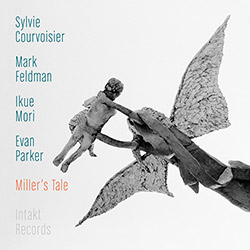
Collective improvisation from a quartet of masters -- NY based Sylvie Courvoisier on piano, Mark Feldman on violin, Ikue Mori on electronics, and London improviser Evan Parker on soprano and tenor sax -- for four pieces as a quartet and five duos of varying configurations, folding back the structure of the band through more intimate conversations; simply excellent.
Out of Stock
Quantity in Basket: None
Log In to use our Wish List
Shipping Weight: 5.00 units
Sample The Album:
Sylvie Courvoisier-piano
Mark Feldman-violin
Evan Parker-soprano saxophone, tenor saxophone
Ikue Mori-electronics
Click an artist name above to see in-stock items for that artist.
UPC: 7640120192709
Label: Intakt
Catalog ID: ITK270.2
Squidco Product Code: 24117
Format: CD
Condition: New
Released: 2016
Country: Switzerland
Packaging: Jewel Case
Recorded at Oktaven Audio in Yonkers, New York, on September 21st, 2015, by Ryan Streber.
"This new release is the pinnacle of the collaboration between celebrated musicians Sylvie Courvoisier, Mark Feldmann, Ikue Mori, and Evan Parker. The fully improvised tracks on this album were recorded in September of 2015. The track sequencing of this release was intentional. The first four whole group pieces followed by five duo works provide multifaceted aural impressions, and an exciting experience for the listener. "Our ears usually first adhere to the known, the familiar. But they 'squint' to something thrilling, to beautifully disturbing things, something extra to enjoy as listeners. Its attractiveness is strongly related to the quality of the known/unknown interweaving in the music. The sensible pleasure of the four musicians in Miller's Tale offers numerous arousing moments to personally connect with the music."-Henning Bolte
"Sylvie Courvoisier is a Brooklyn-based pianist, composer, and improvisor that the readership of this blog is probably well aware of; with over 25 records released as a leader, and around 30 as a sideperson, she's an undoubtedly prolific force in the world of contemporary jazz. Luckily for us, 2016 and the early part of 2017 seem to mark a rather active period for Courvoisier, after a relative dearth of recorded output in 2015. Her studio output has surged recently, and now there is a steady supply of recordings with which she can pull listeners into her captivating sound-world. Recorded in 2015, Miller's Tale is the first of these I'd like to draw readers' attention to. Along with Courvoisier, Miller's Tale features Mark Feldman on piano, Evan Parker on tenor and soprano saxes, and Ikue Mori on electronics.
One of the most distinctive aspects of this album lies in the track sequencing; while the first four pieces are full-group improvisations, the last five feature various duo configurations, so that Miller's Tale becomes a kind of treatise on the dynamics of improvisational group interplay, and how the basic building blocks (e.g. the players) can be switched and substituted to produce results that are often quite divergent. Compare, for instance, "The Reason Why" and "Nothing's Planted," which are sequenced side-by-side on the album. While the former has the structure of a conversation, with Parker responding in kind to the melodic phrases that Feldman turns out, the latter seems more like a soliloquy held in the middle of some dense, sweltering jungle - Parker's ever-inquisitive tenor is on its own, with Mori's electronics offering little in the way of footholds for him to latch onto. When Feldman and Mori get the chance to engage in a duo improvisation, as in "Riding on a Smile and a Shoeshine," the effect is equally disquieting; Feldman plucks and pulls at his instrument, drawing out a range of uncanny tones that, in the context of Mori's enveloping waves of digital detritus, sound absolutely ghostly.
When held up against the dialogic intimacy of the duo improvisations, the tracks in which the full group plays are almost narrative in the way they unfold, with voices constantly bubbling up and dissipating. Considering that Miller's Tale seems to be either an homage to or an account of the life of famed playwright Arthur Miller (all of the track titles are direct references to either works that Miller has produced or quotations within those works), this is hardly surprising. "Death of a Salesman" opens with Feldman's distinctive violin, and soon introduces a range of characters: Courvoisier's percussive plinks-and-plunks, Mori's understated gurgles, and Parker's breathless runs.
If the first track is a rapid-fire exchange between old friends, the second, "A View from the Bridge," is the moment when the conversation has dipped into the bittersweet well of history - atop Courvoisier's rumbling, drone-like foundation, Parker and Feldman construct minor-key monuments to the past.
The longest piece, "The American Dream," could very well be taken as an indictment of that which its title references, especially given the current political climate (and considering that two members of the group, Courvoisier and Mori, immigrated to, and have become permanent residents of, the United States). Here, Feldman's violin can only be described as anguished, shifting through a series of lamentations that always seem to be on the verge of buckling under their own emotional weight. Mori accents this sense of despair with her own burbling rivulets and insectile chirps - anyone familiar with her work knows that she has long been a master of such textures, but they have yet to lose their power to disarm and unnerve. With little-to-no rhythmic underpinning, and a similar lack of melodic anchors, these group improvisations rely on the ability of the players to emulate conversation - the turn-taking, the constant recycling of old ideas, the unplanned arrival of new ideas, and the strained silences. Miller's Tale has all of this and more, and it represents some of the finest that free jazz has to offer."-Derek Stone, The Free Jazz Collective
Get additional information at The Free Jazz Collective
Artist Biographies
• Show Bio for Sylvie Courvoisier "Sylvie Courvoisier is a pianist, composer and improviser. Born in Lausanne, Switzerland, Courvoisier moved to New York in 1998 and has lived in Brooklyn since that time. Courvoisier has led several groups over the years and has recorded over 25 records as a leader or co-leader for different labels, notably ECM , Tzadik and Intakt Records and 30 cds as a sideperson. She has performed and recorded with John Zorn, Mark Feldman, Yusef Lateef, Ikue Mori, Tony Oxley, Tim Berne, Joey Baron, Joëlle Léandre, Herb Robertson, Butch Morris, Evan Parker, Mark Dresser, Ellery Eskelin, Lotte Anker, Fred Frith, Michel Godard, Tomazs Stanko among others. She has been commissioned to write music for concerts, radio, dance and theater. Since 1996, she has been touring widely with her own groups and as a side person in USA, Canada, Japan, Australia and Europe. Currently, Courvoisier is the leader of her TRIO with Kenny Wollesen and Drew Gress. She performs regularly Solo and since 1997, in Duo with violinist Mark Feldman. She co-leads the Sylvie Courvoisier/Mark Feldman Quartet with Scott Colley and Billy Mintz. Since 2000, she has been a member of Mephista, an improvising collective trio with Ikue Mori and Susie Ibarra. She is currently playing and touring in different projects of John Zorn including Cobra and Masada Marathon. She is also playing in Erik Friedlander's Trio, Herb Robertson's Quintet and Nate Wooley's Quartet. Since 2010, she has been working as a pianist and composer for flamenco dancer Israel Galvan's project "la Curva" with more than 150 performances around the world. Awards include Switzerland's 1996 Prix des jeunes créateurs; Zonta Club's 2000 Prix de la Création; Switzerland's 2010 Grand Prix de la Fondation Vaudoise de la Culture; 2013's NYFA (NewYork Foundation For the Art) Music/Sound Fellowship." ^ Hide Bio for Sylvie Courvoisier • Show Bio for Mark Feldman "Mark Feldman (born 1955 in Chicago) is an American jazz violinist. Feldman worked in Chicago from 1973-1980, in Nashville, Tennessee from 1980-1986, in New York City and Western Europe from 1986. He has performed with John Zorn, John Abercrombie, The Masada String Trio, Dave Douglas, Uri Caine, and Billy Hart. He was a member of the Civic Orchestra of Chicago and played in many bar bands in Chicago. He played on over 200 recordings in Nashville as a studio musician, was a member of the Nashville Symphony, and was a member of the touring groups of country western entertainers Loretta Lynn and Ray Price. In 2003 he was soloist with Netherlands Radio Philharmonic Orchestra in Guus Janssen's Violin Concerto and with the WDR Jazz Orchestra in Concerto for Violin and Jazz Orchestra by Bill Dobbins. At Newf York's Lincoln Center he performed in duo with pianists Paul Bley and Muhal Richard Abrams. He has recorded with Michael Brecker, Lee Konitz, Joe Lovano, and Chris Potter and has played on over 100 recordings in New York City as a soloist in contemporary music and modern jazz. Feldman has released several albums, including Music for Violin Alone (Tzadik, 1995); Book of Tells (Enja, 2000); What Exit (ECM, 2006 with British pianist John Taylor; To Fly to Steal (Intakt, 2010) with bassist Thomas Morgan and drummer Gerry Hemingway; and Oblivia (Tzadik, 2010) with his wife, Swiss pianist Sylvie Courvoisier. In September 2012, he and violinist Jean-Luc Ponty produced the debut album of Scott Tixier. Feldman wrote the liner notes." ^ Hide Bio for Mark Feldman • Show Bio for Evan Parker "Evan Parker was born in Bristol in 1944 and began to play the saxophone at the age of 14. Initially he played alto and was an admirer of Paul Desmond; by 1960 he had switched to tenor and soprano, following the example of John Coltrane, a major influence who, he would later say, determined "my choice of everything". In 1962 he went to Birmingham University to study botany but a trip to New York, where he heard the Cecil Taylor trio (with Jimmy Lyons and Sunny Murray), prompted a change of mind. What he heard was "music of a strength and intensity to mark me for life ... l came back with my academic ambitions in tatters and a desperate dream of a life playing that kind of music - 'free jazz' they called it then." Parker stayed in Birmingham for a time, often playing with pianist Howard Riley. In 1966 he moved to London, became a frequent visitor to the Little Theatre Club, centre of the city's emerging free jazz scene, and was soon invited by drummer John Stevens to join the innovative Spontaneous Music Ensemble which was experimenting with new kinds of group improvisation. Parker's first issued recording was SME's 1968 Karyobin, with a line-up of Parker, Stevens, Derek Bailey, Dave Holland and Kenny Wheeler. Parker remained in SME through various fluctuating line-ups - at one point it comprised a duo of Stevens and himself - but the late 1960s also saw him involved in a number of other fruitful associations. He began a long-standing partnership with guitarist Bailey, with whom he formed the Music Improvisation Company and, in 1970, co-founded Incus Records. (Tony Oxley, in whose sextet Parker was then playing, was a third co-founder; Parker left Incus in the mid-1980s.) Another important connection was with the bassist Peter Kowald who introduced Parker to the German free jazz scene. This led to him playing on Peter Brötzmann's 1968 Machine Gun, Manfred Schoof's 1969 European Echoes and, in 1970, joining pianist Alex von Schlippenbach and percussionist Paul Lovens in the former's trio, of which he is still a member: their recordings include Pakistani Pomade, Three Nails Left, Detto Fra Di Noi, Elf Bagatellen and Physics. Parker pursued other European links, too, playing in the Pierre Favre Quartet (with Kowald and Swiss pianist Irene Schweizer) and in the Dutch Instant Composers Pool of Misha Mengelberg and Han Bennink. The different approaches to free jazz he encountered proved both a challenging and a rewarding experience. He later recalled that the German musicians favoured a "robust, energy-based thing, not to do with delicacy or detailed listening but to do with a kind of spirit-raising, a shamanistic intensity. And l had to find a way of surviving in the heat of that atmosphere ... But after a while those contexts became more interchangeable and more people were involved in the interactions, so all kinds of hybrid musics came out, all kinds of combinations of styles." A vital catalyst for these interactions were the large ensembles in which Parker participated in the 1970s: Schlippenbach's Globe Unity Orchestra, Chris McGregor's Brotherhood of Breath, Barry Guy's London Jazz Composers Orchestra (LJCO) and occasional big bands led by Kenny Wheeler. In the late 70s Parker also worked for a time in Wheeler's small group, recording Around Six and, in 1980, he formed his own trio with Guy and LJCO percussionist Paul Lytton (with whom he had already been working in a duo for nearly a decade). This group, together with the Schlippenbach trio, remains one of Parker's top musical priorities: their recordings include Tracks, Atlanta, Imaginary Values, Breaths and Heartbeats, The Redwood Sessions and At the Vortex. In 1980, Parker directed an Improvisers Symposium in Pisa and, in 1981, he organised a special project at London's Actual Festival. By the end of the 1980s he had played in most European countries and had made various tours to the USA, Canada, Australia, New Zealand and Japan. ln 1990, following the death of Chris McGregor, he was instrumental in organising various tributes to the pianist and his fellow Blue Notes; these included two discs by the Dedication Orchestra, Spirits Rejoice and lxesa. Though he has worked extensively in both large and small ensembles, Parker is perhaps best known for his solo soprano saxophone music, a singular body of work that in recent years has centred around his continuing exploration of techniques such as circular breathing, split tonguing, overblowing, multiphonics and cross-pattern fingering. These are technical devices, yet Parker's use of them is, he says, less analytical than intuitive; he has likened performing his solo work to entering a kind of trance-state. The resulting music is certainly hypnotic, an uninterrupted flow of snaky, densely-textured sound that Parker has described as "the illusion of polyphony". Many listeners have indeed found it hard to credit that one man can create such intricate, complex music in real time. Parker's first solo recordings, made in 1974, were reissued on the Saxophone Solos CD in 1995; more recent examples are Conic Sections and Process and Reality, on the latter of which he does, for the first time, experiment with multi-tracking. Heard alone on stage, few would disagree with writer Steve Lake that "There is, still, nothing else in music - jazz or otherwise - that remotely resembles an Evan Parker solo concert." While free improvisation has been Parker's main area of activity over the last three decades, he has also found time for other musical pursuits: he has played in 'popular' contexts with Annette Peacock, Scott Walker and the Charlie Watts big band; he has performed notated pieces by Gavin Bryars, Michael Nyman and Frederic Rzewski; he has written knowledgeably about various ethnic musics in Resonance magazine. A relatively new field of interest for Parker is improvising with live electronics, a dialogue he first documented on the 1990 Hall of Mirrors CD with Walter Prati. Later experiments with electronics in the context of larger ensembles have included the Synergetics - Phonomanie III project at Ullrichsberg in 1993 and concerts by the new EP2 (Evan Parker Electronic Project) in Berlin, Nancy and at the 1995 Stockholm Electronic Music Festival where Parker's regular trio improvised with real-time electronics processed by Prati, Marco Vecchi and Phillip Wachsmann. "Each of the acoustic instrumentalists has an electronic 'shadow' who tracks him and feeds a modified version of his output back to the real-time flow of the music." The late 80s and 90s brought Parker the chance to play with some of his early heroes. He worked with Cecil Taylor in small and large groups, played with Coltrane percussionist Rashied Ali, recorded with Paul Bley: he also played a solo set as support to Ornette Coleman when Skies of America received its UK premiere in 1988. The same period found Parker renewing his acquaintance with American colleagues such as Anthony Braxton, Steve Lacy and George Lewis, with all of whom he had played in the 1970s (often in the context of London's Company festivals). His 1993 duo concert with Braxton moved John Fordham in The Guardian to raptures over "saxophone improvisation of an intensity, virtuosity, drama and balance to tax the memory for comparison". Parker's 50th birthday in 1994 brought celebratory concerts in several cities, including London, New York and Chicago. The London performance, featuring the Parker and Schlippenbach trios, was issued on a highly-acclaimed two-CD set, while participants at the American concerts included various old friends as well as more recent collaborators in Borah Bergman and Joe Lovano. The NYC radio station WKCR marked the occasion by playing five days of Parker recordings. 1994 also saw the publication of the Evan Parker Discography, compiled by ltalian writer Francesco Martinelli, plus chapters on Parker in books on contemporary musics by John Corbett and Graham Lock. Parker's future plans involve exploring further possibilities in electronics and the development of his solo music. They also depend to a large degree on continuity of the trios, of the large ensembles, of his more occasional yet still long-standing associations with that pool of musicians to whose work he remains attracted. This attraction, he explained to Coda's Laurence Svirchev, is attributable to "the personal quality of an individual voice". The players to whom he is drawn "have a language which is coherent, that is, you know who the participants are. At the same time, their language is flexible enough that they can make sense of playing with each other ... l like people who can do that, who have an intensity of purpose." " ^ Hide Bio for Evan Parker • Show Bio for Ikue Mori "Ikue Mori moved from her native city of Tokyo to New York in 1977. She started playing drums and soon formed the seminal NO WAVE band DNA, with fellow noise pioneers Arto Lindsay and Tim Wright. DNA enjoyed legendary cult status, while creating a new brand of radical rhythms and dissonant sounds; forever altering the face of rock music. In the mid 80's Ikue started in employ drum machines in the unlikely context of improvised music. While limited to the standard technology provided by the drum machine, she has never the less forged her own highly sensitive signature style. Through out in 90's She has subsequently collaborated with numerous improvisors throughout the US, Europe, and Asia, while continuing to produce and record her own music. 1998, She was invited to perform with Ensemble Modern as the soloist along with Zeena Parkins, and composer Fred Frith, also "One hundred Aspects of the Moon" commissioned by Roulette/Mary Flagler Cary Charitable Trust. Ikue won the Distinctive Award for Prix Ars Electronics Digital Music category in 99. In 2000 Ikue started using the laptop computer to expand on her already signature sound, thus broadening her scope of musical expression. 2000 commissioned by the KITCHEN ensemble, wrote and premired the piece "Aphorism" also awarded Civitella Ranieri Foundation Fellowship. 2003 commissioned by RELACHE Ensemble to write a piece for film In the Street and premired in Philadelphia. Started working with visual played by the music since 2004. In 2005 Awarded Alphert/Ucross Residency. Ikue received a grant from the Foundation for Contemporary Arts in 2006. In 2007 the Tate Modern commissioned Ikue to create a live sound track for screenings of Maya Deren's silent films. In 2008 Ikue celebrated her 30th year in NY and performed at the Japan Society. Recent commissioners include the Montalvo Arts Center and SWR German radio program and Shajah Art foundation in UAE. Current working groups include MEPHISTA with Sylvie Courvoisier and Susie Ibarra, PHANTOM ORCHARD with Zeena Parkins, project with Koichi Makigami and various ensembles of John Zorn. New duo Twindrums project with YoshimiO workshop/lecture in various schools include University of Gothenburg, Dartmouth Collage, New England Conservatory, Mills Collage, Stanford University, The School of the Art Institute of Chicago" ^ Hide Bio for Ikue Mori
11/18/2024
Have a better biography or biography source? Please Contact Us so that we can update this biography.
11/18/2024
Have a better biography or biography source? Please Contact Us so that we can update this biography.
11/18/2024
Have a better biography or biography source? Please Contact Us so that we can update this biography.
11/18/2024
Have a better biography or biography source? Please Contact Us so that we can update this biography.
Track Listing:
1. Death Of A Salesman 7:57
2. A View From The Bridge 6:30
3. The American Dream 13:30
4. Up From Paradise 8:03
5. Riding On A Smile And A Shoeshine 6:13
6. Playing For Time 4:47
7. The Reason Why 5:01
8. Nothing's Planted 3:41
9. A Fountain Pen 3:46
Improvised Music
Jazz
Free Improvisation
London & UK Improv & Related Scenes
NY Downtown & Metropolitan Jazz/Improv
Parker, Evan
Electro-Acoustic
Electro-Acoustic Improv
Mori, Ikue
Quartet Recordings
Intakt
Staff Picks & Recommended Items
Search for other titles on the label:
Intakt.


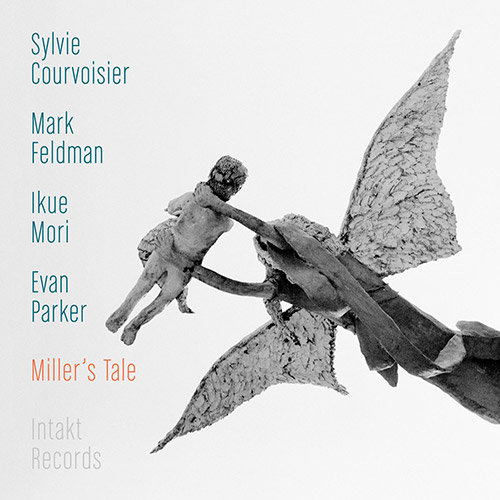




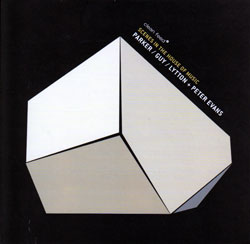

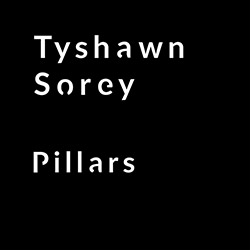



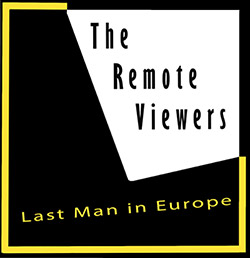
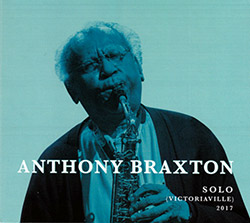





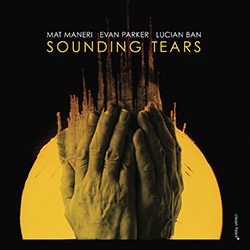

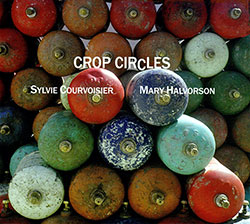

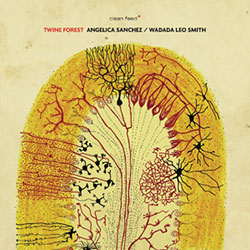

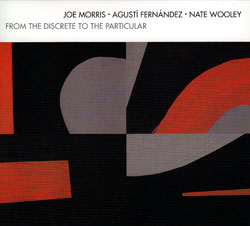
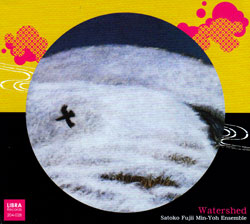
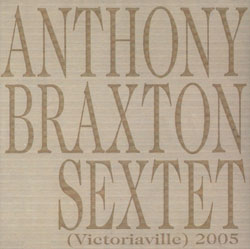














![Barker / Parker / Irabagon: Bakunawa [VINYL]](https://www.teuthida.com/productImages/misc4/35533.jpg)
![Blaser, Samuel / Marc Ducret / Peter Bruun: Dark Was The Night, Cold Was The Ground [VINYL 10-inch]](https://www.teuthida.com/productImages/misc4/35492.jpg)










![Warren, Kenny (Warren / Hoffman / Ellman): Sweet World [VINYL]](https://www.teuthida.com/productImages/misc4/35451.jpg)


![Blake, Ran / Dave Knife Fabris: Live Amsterdam 2006, First Visit [CD + POSTCARDS]](https://www.teuthida.com/productImages/misc4/35275.jpg)
![Sanna, Claudio: Compositori Sardi Contemporanei II [2 CDs]](https://www.teuthida.com/productImages/misc4/35317.jpg)












![Nevai, Nandor: <<The PRICE of FRONTIER>> Book 1: FULK [BOOK + 4 CDs]](https://www.teuthida.com/productImages/misc4/35464.jpg)
![Nevai, Nandor: <<The PRICE of FRONTIER>> Book 2: MARTIAL [BOOK + 4 CDs]](https://www.teuthida.com/productImages/misc4/35465.jpg)
![Nevai, Nandor: <<The PRICE of FRONTIER>> Book 3: JASSOM [BOOK + 4 CDs]](https://www.teuthida.com/productImages/misc4/35466.jpg)
![Nevai, Nandor: <<The PRICE of FRONTIER>> Book 4: HARD-WON [BOOK + 4 CDs]](https://www.teuthida.com/productImages/misc4/35467.jpg)






![DNS: Taking Big Bites Of The Khandas Three Cafes Deep [2 CDs]](https://www.teuthida.com/productImages/misc4/35334.jpg)




![Cleaver, Gerald: The Process [VINYL]](https://www.teuthida.com/productImages/misc4/34966.jpg)




![Alva Noto: HYbr:ID II [VINYL 2 LPs]](https://www.teuthida.com/productImages/misc4/35201.jpg)

![Baron, Derek / Luke Martin: Distinct and Concealed [CASSETTE + DOWNLOAD]](https://www.teuthida.com/productImages/misc4/35079.jpg)

![Lyle, Erica Dawn : Colonial Motels [CASSETTE + DOWNLOAD]](https://www.teuthida.com/productImages/misc4/35080.jpg)







![Alva Noto: HYbr:ID III [VINYL 2 LPs]](https://www.teuthida.com/productImages/misc4/35011.jpg)
![Kubisch, Christina / Trondheim Voices: Stromsanger 2022 For Six Voices And Electromagnetic Waves [VINYL]](https://www.teuthida.com/productImages/misc4/34628.jpg)








![Zurria, Manuel: Fame di Vento [3 CDs]](https://www.teuthida.com/productImages/misc4/35167.jpg)

![Granberg, Magnus / Nattens Inbrott / Skogen: Holde Traume, Kehret Wieder! [2 CDs]](https://www.teuthida.com/productImages/misc4/35038.jpg)
![Frey, Jurg: Outermost Melodie [2 CDs]](https://www.teuthida.com/productImages/misc4/35039.jpg)

![Pavone, Jessica: Reverse Bloom [VINYL]](https://www.teuthida.com/productImages/misc4/34895.jpg)




![Modney (Modney / Wooley / Gentile / Roberts / Pluta / Symthe / ...): Ascending Primes [2 CDs]](https://www.teuthida.com/productImages/misc4/34852.jpg)








![Elephant9 with Terje Rypdal: Catching Fire [VINYL 2 LPs]](https://www.teuthida.com/productImages/misc4/35355.jpg)
![Deerlady (Obomsawin, Mali / Magdalena Abrego): Greatest Hits [VINYL]](https://www.teuthida.com/productImages/misc4/34876.jpg)




![Haino, Keiji: Black Blues [2 CDs]](https://www.teuthida.com/productImages/misc4/35109.jpg)



![Surplus 1980: Illusion of Consistency [CD]](https://www.teuthida.com/productImages/misc4/35069.jpg)
![Staiano, Moe: Away Towards the Light [VINYL + DOWNLOAD]](https://www.teuthida.com/productImages/misc4/35037.jpg)




![Caveira (Gomes / Sousa / Abras / Ferrandini): Ficar Vivo [VINYL]](https://www.teuthida.com/productImages/misc4/34643.jpg)
![Gregg, J. J. / David Van Auken: Lunar Prairie [CD w/ DOWNLOAD]](https://www.teuthida.com/productImages/misc4/34611.jpg)

![Coultrain: Mundus [VINYL]](https://www.teuthida.com/productImages/misc4/32439.jpg)
![Mattin: Songbook #6 [VINYL]](https://www.teuthida.com/productImages/misc4/27317.jpg)
![Punkappella: Wake Up [7-inch VINYL]](https://www.teuthida.com/productImages/misc4/17519.jpg)
![Residents, The: WARNING: UNiNC.: Live And Experimental Recordings 1971-1972 [VINYL 2 LPs]](https://www.teuthida.com/productImages/misc4/31521.jpg)
![Coultrain: Phantasmagoria [VINYL]](https://www.teuthida.com/productImages/misc4/30142.jpg)
![Lennon, Sean Ono: Asterisms [VINYL]](https://www.teuthida.com/productImages/misc4/34517.jpg)

![Rotem Geffen: The Night Is The Night [VINYL]](https://www.teuthida.com/productImages/misc4/34631.jpg)
![Coley, Byron: Dating Tips for Touring Bands [VINYL]](https://www.teuthida.com/productImages/misc4/17906.jpg)

![Lost Kisses: My Life is Sad & Funny [DVD]](https://www.teuthida.com/productImages/misc4/lostKissesDVD.jpg)